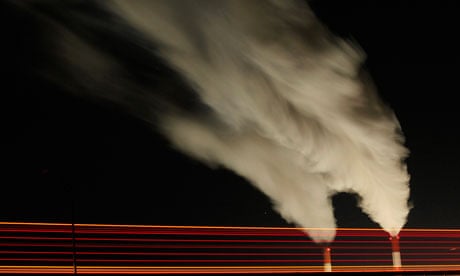Climate advocates are open to the idea of “dumping” the carbon tax by bringing forward a floating carbon pricing scheme, but they have some important provisos.
While Greens leader Senator Christine Milne has condemned the mooted change to the carbon price she negotiated with Julia Gillard, some climate advocacy groups say it might not be a bad idea, although it would be complicated and potentially expensive.
Australian Conservation Foundation executive director Don Henry said if funding for bodies like the Australian Renewable Energy Agency was not cut to make up for the potential budget losses from the move then “it would not necessarily cause a problem.”
But the budget could be $4 or $5 billion worse off because of the difference between the legislated fixed price of $25 and the floating price set by the international market which is likely to be about $6.
And Henry said the floating price would have to continue to be determined by a review by the Climate Authority of Australia’s target - and a recommendation about its annual caps.
The Climate Institute chief executive John Connor also offered “conditional support”.
“If it helps concentrate people’s minds that this is actually about reducing emissions and taking our fair share of the international burden, rather than just being about paying a tax then that would be a good thing,” he said.
The issue was set to be discussed at the first meeting of the new Rudd Cabinet on Monday night and presents a big challenge for new Climate Change minister Mark Butler.
Current legislation requires that, before the shift from a fixed price to a floating price can occur as planned in July 2015, the Climate Change Authority must set an annual cap on pollution based on its assessment of what Australia’s emissions reduction target should be, taking into account international action.
The authority releases a draft report in October and a final report in February 2014. That means the earliest the Rudd Government could feasibly start a floating price under the current arrangements would be July 2014 - one year before the price is set to float anyway.
It would also require legislation and would be unlikely to receive support from either the Greens or the coalition.
Business groups are keen for Labor to consider any mechanism that would allow the floating price to reduce carbon permit costs as soon as possible and are scheduling meetings with Butler.
Environment groups believe an assessment of international action will require the government to increase its emissions reduction pledge to reduce emissions by 5% by 2020 and 80% by 2050.
But in its submission to the authority, the Business Council of Australia said Australia should lower its long term targets to reduce greenhouse gas, because other countries have not implemented policies to meet the international goal of limiting global warming to two degrees Celsius.
And it insisted a tougher target than the current one should definitely be off the agenda.
